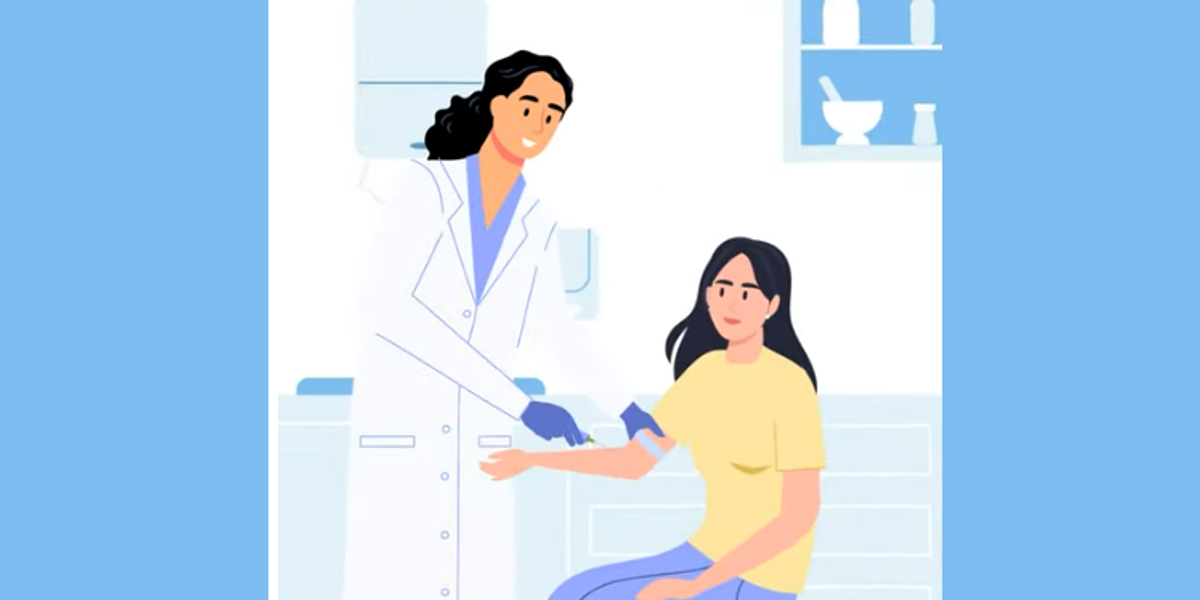HIV Testing: Knowing Your Status Can Save Your Life

Medically reviewed by Jeffrey Kwong, DNP, MPH, AGPCNP-BC, FAANP, FAAN
This resource was created with support from Merck.
|
Video/Image |
Voiceover/Audio |
|
HIV Testing Knowing your status can save your life |
|
|
Sun comes up, a woman stretches and hops out of bed, goes through a morning routine |
Narrator: Did you know that anyone who has sex without a condom is at risk of getting HIV? And you may not even know you have it because you may not have any symptoms. Or, if you do have symptoms, they can mimic other illnesses, like the flu or other viruses. |
|
Treatment is effective. |
Thanks to medical advancements, treatment for HIV has come a long way. In fact, there are effective treatments available that can keep the virus from turning into AIDS and help you live a long, healthy life. |
|
Testing is easy. |
The good news is that it’s pretty easy to find out if you’re living with HIV. |
|
The woman is getting her blood drawn |
A simple blood test that comes back the same day or within just a few days can tell you your status. |
|
Where can you get tested? SUPERS or Icons: Healthcare provider’s office Hospital Health department Community HIV center |
You can get an HIV test in several different places, including your healthcare provider’s office, or a local hospital, health department or community HIV testing center. |
|
Show woman testing at home Pharmacy Online together.takemehome.org Woman is on the phone |
Y ou can even buy a self-test for HIV at a pharmacy or online. And the CDC offers free testing kits through its Together Take Me Home program. If you self test and get a positive result, it’s important to let your healthcare provider know so you can get started on treatment as soon as possible. |
|
Woman going into a clinic SUPERS: Who should get tested? Everyone over age 13 |
Everyone over the age of 13 who is sexually active should get tested at least once. |
|
SUPERS (populate with VO) Unprotected sex A new sex partner Sex with HIV+ person Sharing needles Tuberculosis Hepatitis STI |
And if you’re in a high-risk category, you should get tested more often. High-risk groups include people who have sex without a condom, people who have had a new sex partner since their last HIV test, people who have had sex with someone who is HIV positive, people who use IV drugs and share needles, and people with tuberculosis, hepatitis or any STI. |
|
SUPER: Know your status. Get tested. |
Knowing your HIV status is important because it can keep you from transmitting the virus to others — and it can save your life. |
|
For more information, please visit HealthyWomen.org |
|
|
This educational resource was created with support from Merck. |
|

